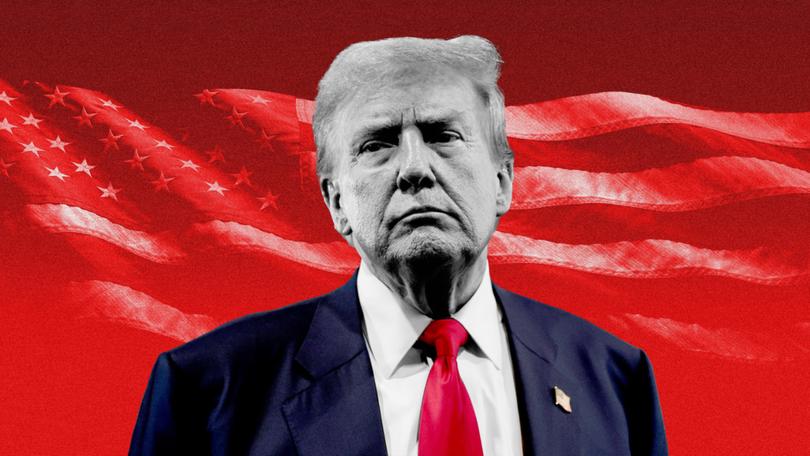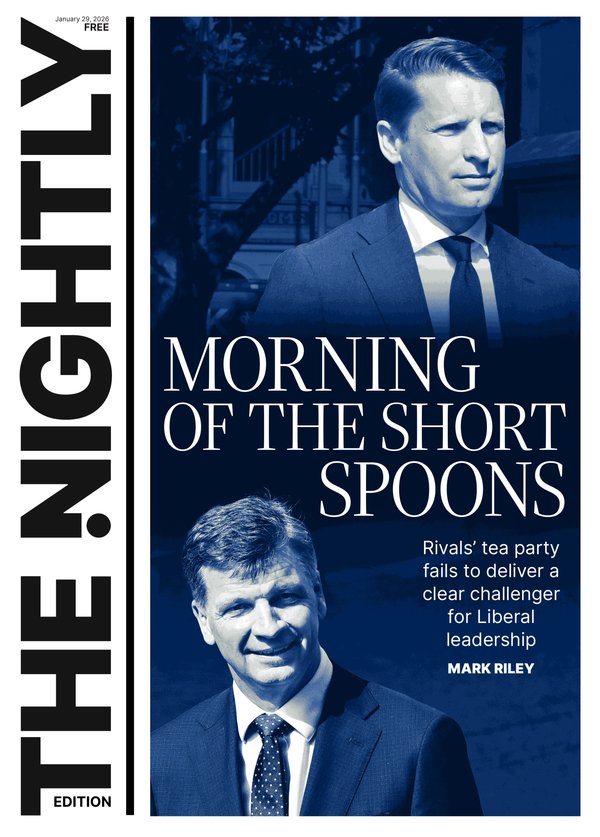THE ECONOMIST: The three forces that will shape 2025 - Donald Trump, technology and radical uncertainty

What happens when the world’s biggest economy takes a sharp protectionist turn?
When the global superpower decides that a transactional foreign policy beats alliances? And when the reset takes place as wars rage, menacing adversaries join forces and artificial intelligence (AI) is changing everything from health care to warfare?
The world is about to find out.
Sign up to The Nightly's newsletters.
Get the first look at the digital newspaper, curated daily stories and breaking headlines delivered to your inbox.
By continuing you agree to our Terms and Privacy Policy.In the campaign Donald Trump promised massive change. That is possible, but the rhetoric of campaign speeches is quite different from the reality of governing.
The people Mr Trump chooses for his team and the priorities they focus on will determine how much he can accomplish. His early appointments suggest an emphasis on loyalty, hawkishness and disruption.
Foreign-policy tests will come fast. Mr Trump has repeatedly said he will end the war in Ukraine in a single day and will face pressure to get a deal quickly.
As the first example of his supposedly muscular diplomacy, the outcome will ripple around the world. If Mr Trump presses Ukraine to accept territorial losses, but offers a security guarantee that durably deters Vladimir Putin, America’s (and Mr Trump’s) credibility will be enhanced.
But if he forces Ukraine into a lopsided peace deal that leaves it vulnerable to Russia, Mr Putin will have won. Ukraine’s survival will then depend on whether Europeans can defend it—a test they are likely to fail. China and other would-be aggressors will take note: American promises are empty.
The Middle East will pose early tests of a different sort. Mr Trump may well succeed in getting Israel and Hamas to agree to a ceasefire in Gaza; Binyamin Netanyahu will want to give him a quick win. But Mr Trump is unlikely to steer Israel towards the only long-term solution—a path to a Palestinian state.
He will want to be tough on Iran, not least because it may have plotted to assassinate him. But “maximum pressure”, his administration’s sanctions policy in his first term, will now prove less powerful. Iran has built a shadowy network to sell its oil, mainly to China.
Reinventing the machinery of government could be the most important part of Mr Trump’s agenda
The most important geopolitical choice will be how to deal with China. Though its economy is currently weak, China is both a more aggressive and more formidable adversary than when Mr Trump first became president in 2017. He could swiftly face a crisis in the South China Sea. Whether he assists the Philippines or abandons it will be a key test.
China will also reveal how extreme Mr Trump is about tariffs. He has promised 60% levies on imports from China (and 10-20% on all other countries).
Is this negotiating bluster or a real desire to decouple America’s economy from China’s? That will become clear in 2025, not least because implementing tariffs will compete for attention with Mr Trump’s other priorities.
Top of that list will be illegal immigration. Expect a showy effort at mass deportations. Tax cuts will also be high on the agenda because Mr Trump’s first-term tax package expires at the end of 2025.
He added some $10trn-worth of new tax-cutting promises during the campaign. But even though Republicans hold both houses of Congress, lawmakers are nervous about budget-busting on that scale.
With luck, the most consequential part of Mr Trump’s domestic agenda will lie elsewhere: in a programme to deregulate and reinvent the machinery of government, from drug regulation to military procurement. These reforms will determine how quickly America adopts and diffuses cutting-edge technologies including biotech and AI.
Elon Musk will be in charge. His promise to slash the federal budget by $2trn is absurd. But the idea that America needs government reform to maintain its lead in radical new technologies is surely right.
If Mr Trump truly wants to make America great, this is where his administration should focus. It would be ironic if the man who loves tariffs led the charge to accelerate technologies that may eventually reshape or replace many American jobs. But extending America’s lead in AI would do far more to ensure its future prosperity and military security than any other part of the MAGA agenda.
Over to you, Elon.
